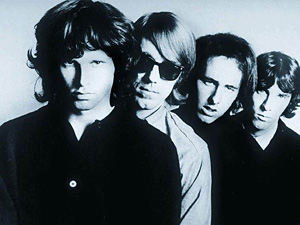 |
 |
 |
 News Around the Republic of Mexico | October 2007 News Around the Republic of Mexico | October 2007  
The Doors Recall '60s Mexican Rock Ban
 Mark Stevenson - Associated Press Mark Stevenson - Associated Press
go to original


| | The powers that be said, `No way are we going to let 60,000 hippies in the Plaza de Toros,' the bullring where The Doors were scheduled to perform in 1969. |
Mexico City - Ray Manzarek and Robby Krieger of The Doors say authorities prevented them from holding an outdoor concert in 1969, at the beginning of what many call a 20-year de facto ban on rock concerts in Mexico.

Speaking in Mexico City before a planned concert Tuesday at the National Auditorium, the musicians discussed government repression against young people and their music in the years following the Oct. 2, 1968, massacre of student protesters by government troops in the capital's Tlatelolco square.

"The powers that be said, `No way are we going to let 60,000 hippies in the Plaza de Toros,'" the bullring where The Doors were scheduled to perform in 1969, Manzarek said. "We were very unhappy about not being able to play for the students."

Manzarek, 68, said the band ended up performing at an upscale private dinner club, where people ate steaks as frontman Jim Morrison crooned songs such as "The End," which includes lyrics about incest and parricide.

On Tuesday, activists commemorated the 39th anniversary of the Tlatelolco clash, which official reports say left 25 people dead. Human-rights groups say as many as 350 may have been killed.

For more than two decades after the massacre, Mexican authorities refused permits and discouraged promoters from booking local and foreign rock acts. Fans had to go to underground clubs or buy records at impromptu street markets.

Only one large concert was allowed during those years: a 1971 show in the town of Avandaro, west of the capital, that apparently slipped under the radar because it was billed primarily as an auto race and was promoted by young people from wealthy families.

"The government's attitude during that era was one of absolute rejection and repression," Mexican rock historian Jose Agustin said. "They thought that any rock 'n' roll event was going to cause disorder, depravity and obscenity."

Authorities began to relax the policy in 1989 when Rod Stewart performed. By the 1990s, a steady stream of foreign and domestic rock bands were performing publicly. | 
 | |
 |



